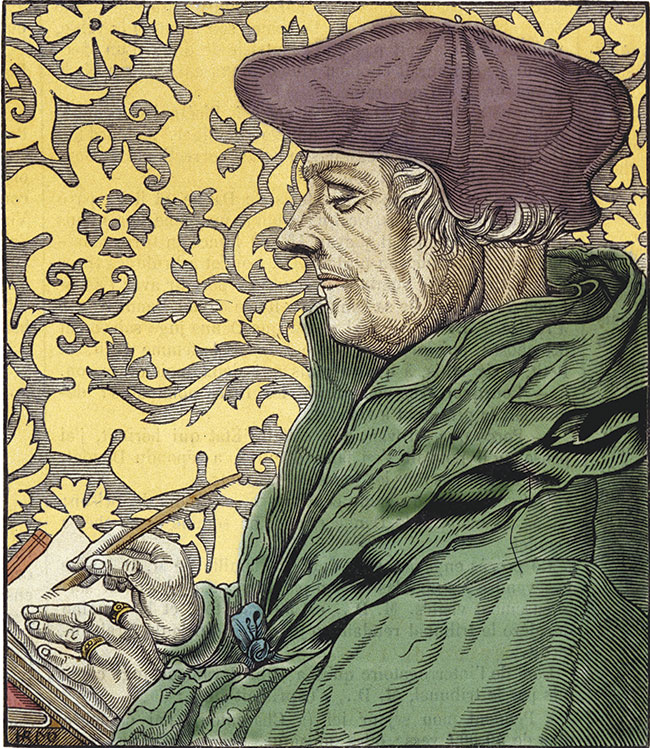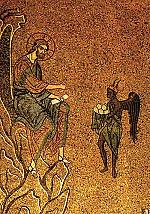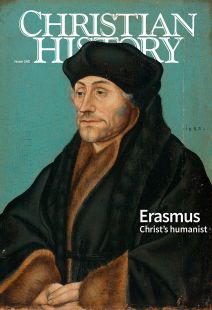Questions for reflection

[Portrait of Didier Erasme (Erasmus of Rotterdam) (1469–1536), Dutch humanist—© Giancarlo Costa / Bridgeman Images]
Use these questions on your own or in a group to reflect on the story of Erasmus’s life and its lessons for today.
1. Before you read this issue, what did you know about Erasmus (if anything)?
2. Our lead article (pp. 6–10) says that Erasmus’s ideas have “remained alive.” Do you agree? If so, where do you see these ideas at work in the world today?
3. As a humanist (pp. 11–14), Erasmus thought that returning to early classical and Christian sources would improve both learning and piety. Do you agree? Why or why not? If you’ve read our issue #129, Recovery from Modern Amnesia, what similarities and differences do you see between Erasmus’s humanism and those twentieth-century thinkers?
4. How would you summarize Erasmus’s argument about wisdom and foolishness in Christianity in our excerpt from Praise of Folly (p. 15)? Do you agree? Why or why not? What applications do you see to your own life and that of your church?
5. What do Erasmus’s different writings (pp. 16–19) reveal about him? Did any genres surprise you? If so, why? Which genres do you generally most appreciate for intellectual and devotional inspiration?
6. With which column on our chart of reforming thinkers (pp. 20–21) do you agree most (Erasmus, Luther, Zwingli, the Anabaptists, or Calvin)? Why? With which column would your local church or denomination agree most?
7. How did Erasmus’s relationships with Luther and his followers differ from his relationships with the Swiss and German reformers he had mentored (pp. 24–27)? Have you ever broken relationships over doctrinal issues or preserved them despite differences?
8. What did Erasmus mean by saying that a city should be a great monastery (pp. 28–31)? Do you agree? Why or why not? How would you go about educating a Christian political leader? How would you educate Christian citizens?
9. How did Erasmus and Thomas More affect and influence each other (p. 32)? Have you ever had a similar Christian friendship, and if so, how did it affect your life?
10. Erasmus and many Anabaptists downplayed the extent of his influence on them (pp. 33–35). Do you think they were right? Why or why not?
11. What similarities did you see among the figures on pp. 36–39? What differences? Which ones inspired you the most? Puzzled you the most?
12. Can Erasmus serve as a model to us today, and if so, how (pp. 40–41)? Do you see dangers or cautions in any aspects of his thinking? If so, what?
13. What’s one thing you learned from this issue that surprised you?
14. With which aspect of Erasmus do you most identify—the church reformer, the Renaissance humanist, or the faithful Catholic? Why?
By the editors
[Christian History originally published this article in Christian History Issue #145 in 2022]
Next articles
Introduction
Lewis called the Incarnation "the grand miracle"
Jennifer Woodruff Tait and Marjorie Lamp MeadIntroduction
Lent developed out of periods of prayer and fasting by new converts in the early church
Jennifer Woodruff Tait





